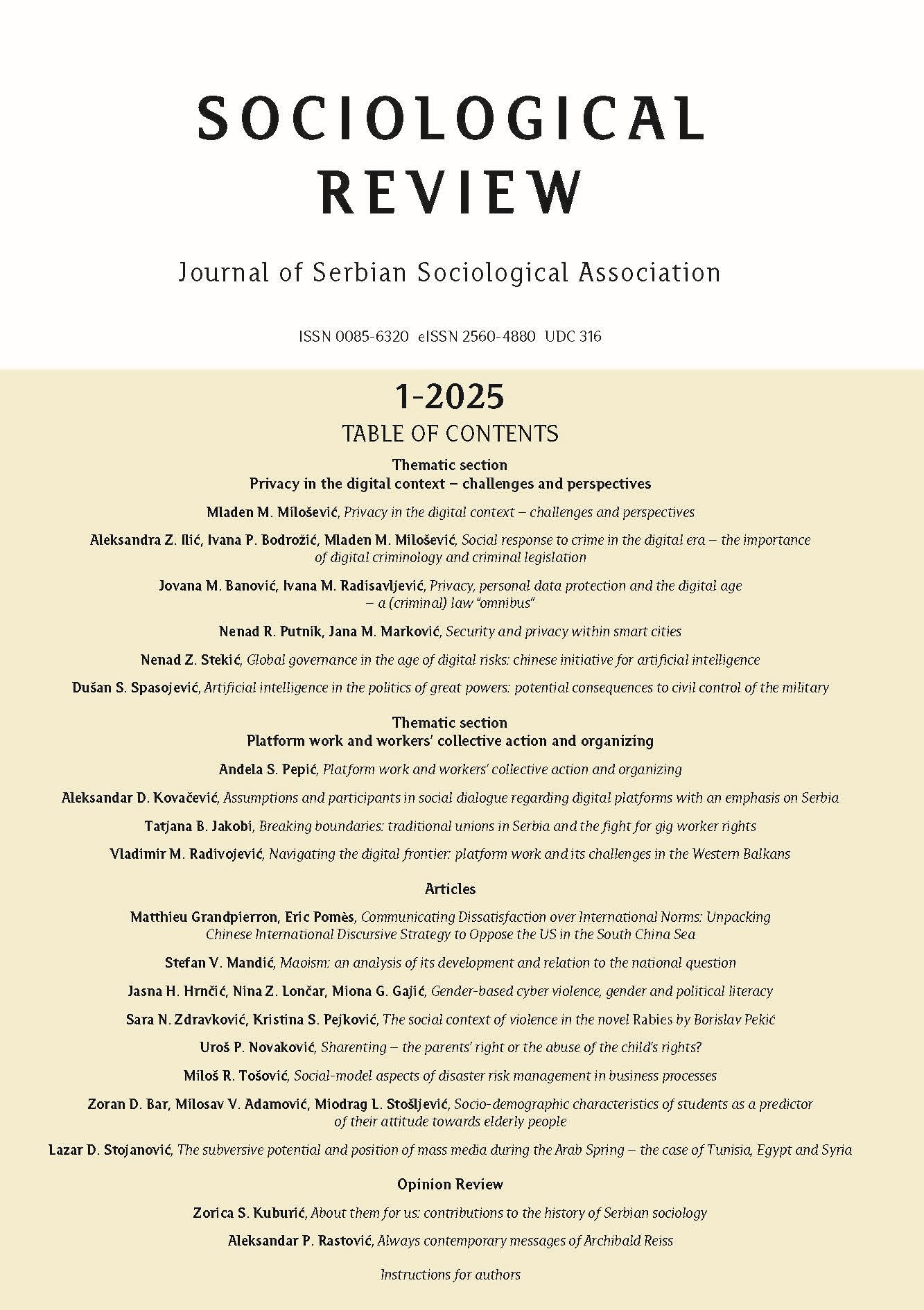Privacy, personal data protection and the digital age – a (criminal) law “omnibus”
Privacy, personal data protection and the digital age – a (criminal) law “omnibus”
Author(s): Jovana M. Banović, Ivana M. RadisavljevićSubject(s): Social Sciences, Criminal Law, Sociology, Social development, Social differentiation, Criminology, Social Norms / Social Control, Sociology of Law
Published by: Српско социолошко друштво
Keywords: privacy;personal data;unauthorized collection;unauthorized recording;criminal law protection
Summary/Abstract: The Constitution of the Republic of Serbia safeguards the right to privacy through several aspects, as does the European Convention on Human Rights and Fundamental Freedoms. The cornerstone in this area is the Law on Personal Data Protection from 2018. In line with the ultima ratio principle of criminal law, the Criminal Code protects these data when the most severe violations occur, pursuant to the Criminal Procedure Code. However, with the daily expansion of science, technology, and innovative means of communication and recording, this takes on a different, “digital” dimension. Naturally, this trend calls for certain adjustments in regulations, as well as in their interpretation and application. In this paper, the authors aim to highlight key provisions of the aforementioned regulations and their current and future interpretation within the context of digital society, with a particular focus on criminal law aspects. This complexity is further amplified by the development of artificial intelligence, which inherently relies on the use of vast amounts of data. The aim of this paper is to identify some of the critical elements in the protection of privacy rights, particularly those related to personal data most closely linked to individuals, and to raise the question of potential legislative amendments.
Journal: Социолошки преглед
- Issue Year: 59/2025
- Issue No: 1
- Page Range: 36-56
- Page Count: 21
- Language: English, Serbian

